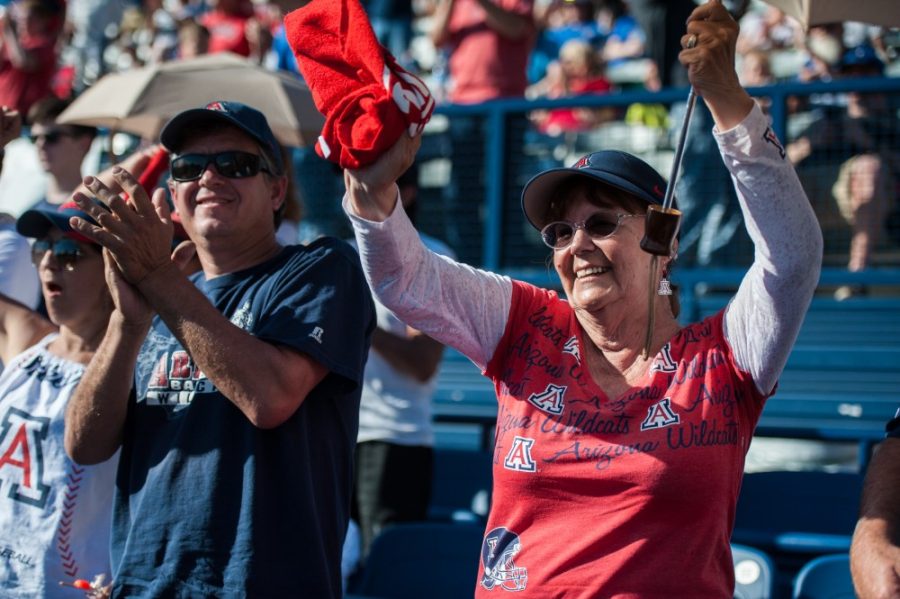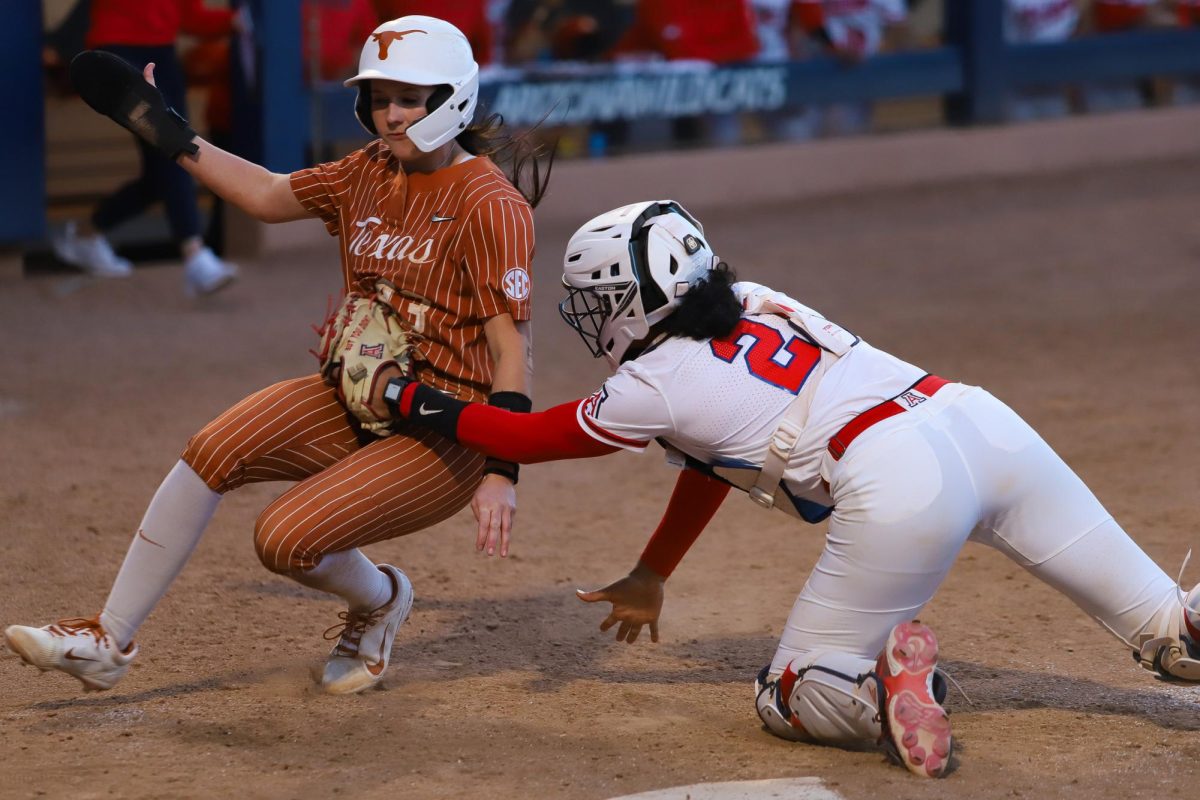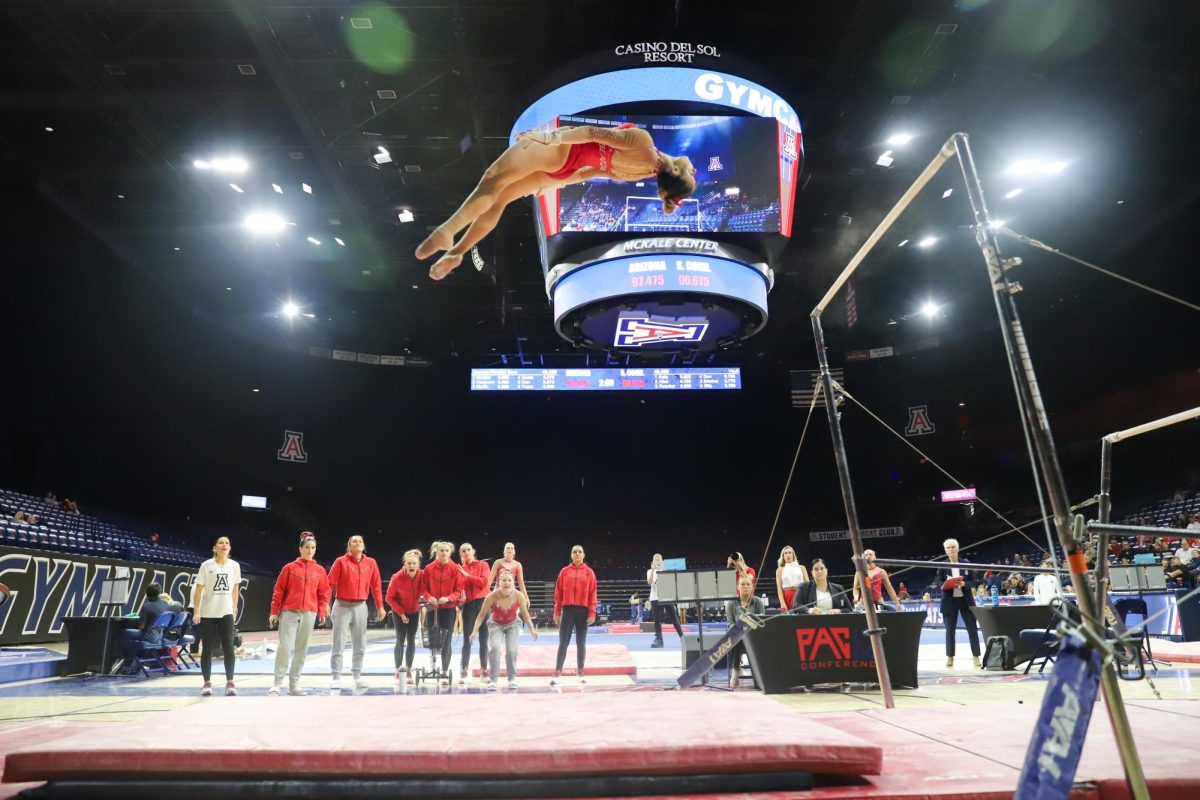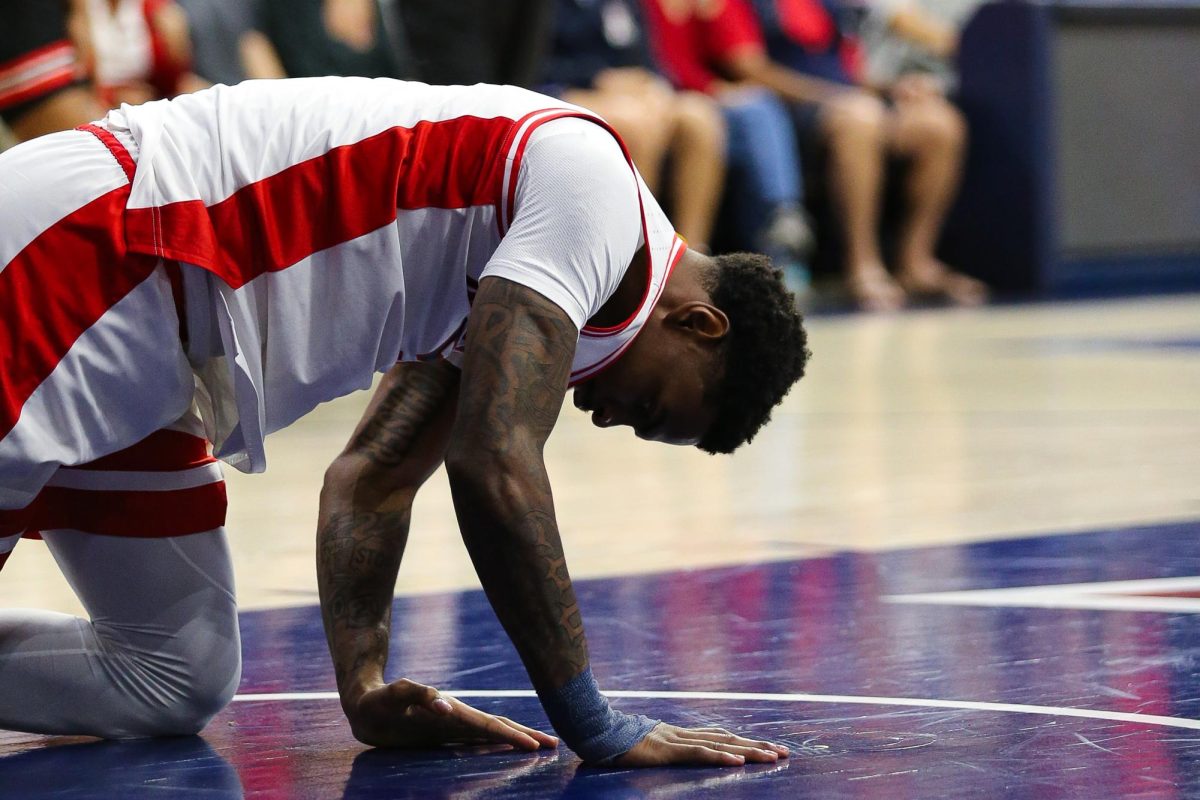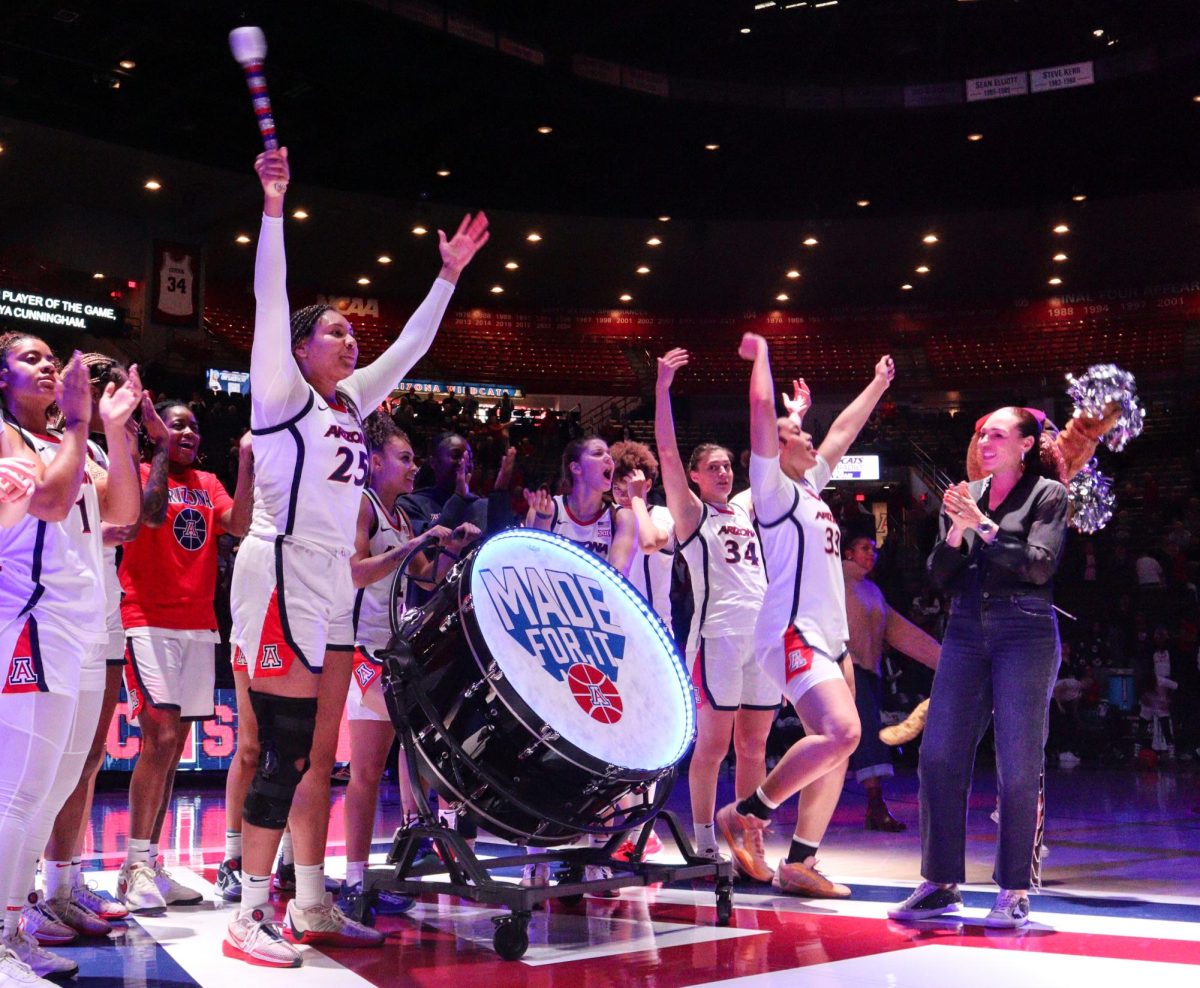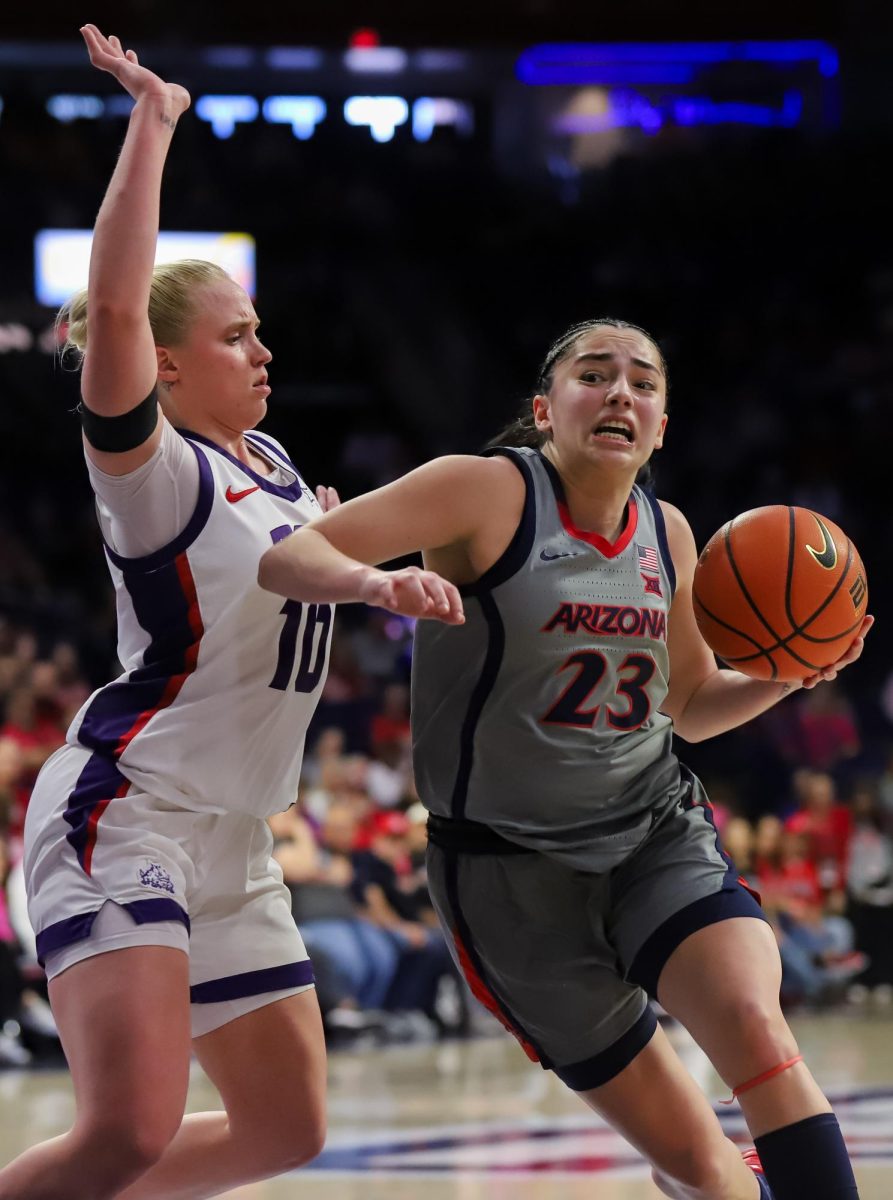What makes a fan so close to a team? There’s really no right or wrong answer to that question. Whether it be the city, the food, players or the ballpark itself, something keeps fans returning to the team they love through thick and thin.
For Scott Simon, author of six books including “My Cubs: A Love Story,” the answer as to why he loves his team so much is his connection to the city where he was born and raised.
“I know in my case, my feelings as a sports fan are absolutely tied up in my feelings for my city, Chicago,” Simon said.
Simon, who will be in Tucson for the Festival of Books, is much more than an author. He’s a journalist, hosts a weekly show for NPR, has won a Peabody and Emmy award and appeared on ESPN. Not to mention he worked for PBS, NBC AND BBC World News. But under all of those accolades and titles, Simon is a Chicago sports fan and here’s a look at why.
For his first book, “Home and Away,” Simon followed the Chicago Bulls during the Michael Jordan, Scottie Pippen and Phil Jackson era when the team won six NBA championships. The Bulls’ head coach Phil Jackson became a fan of Simon’s for his work with NPR. Simon recalls talking with Jackson about his outlook on winning championships.
“As he said to me once, you’re motivated to win your first championship, you’re motivated to defend your first championship by winning a second, but by the time you get to the fourth, fifth and sixth championships, you might lack motivation,” he said.
What came from that trip was his first novel and when he started documenting his love for Chicago sports teams.
“I wound up writing a book that was a memoir of that team but also what it meant to be a sports fan and also a family memoir. So that’s how I got into it and then I got an offer to do a book on Jackie Robinson which led to my second sports book,” Simon said.
If you ask Simon if he prefers to watch basketball or baseball, he will tell you it’s baseball — his connection with baseball stems far beyond winning and losing. Simon developed his love for the Cubs long before their 2016 World Series win. He remembers skipping class in high school to go to “a garden in the middle of a teaming city” that was Wrigley Field.
“As long as your grades were pretty good, it was considered perfectly acceptable for you to miss a day of high school to go to the game. Now that wasn’t true if your grades weren’t so good, but you could come in and say ‘well you know a group of us went to Wrigley Field,’ and the teacher would kind of smile,” Simon said.
Simon laughed at the idea of how empty Cubs games tended to be as a kid. In his high school days, the games at Wrigley field weren’t well attended, so he never had to worry about not having a decent seat at the game. For Simon and his neighborhood, being a Cubs fan was a way of life rather than a decision.
“That’s what it was like to be from the North Side of Chicago. You know the ballpark was right in your neighborhood when the windows of our school were open in the spring, and in the fall you could hear the cheers from Wrigley field. You could hear the home runs,” Simon said.
Those types of memories are ones that can’t be broken by a losing season. For people who are truly fans, it’s the little things that keep people wanting more. For example, one tradition that Simon remembers about the Cubs is when they would hang a large “W” or “L” outside of the ballpark. The “W” would notify fans of a Cubs win, and the “L” of course would mean a loss for the team. He recalls riding by Wrigley Field after school and talking with people leaving the day game.
“Most of us lived in apartments and didn’t have backyards, so Wrigley Field in fact was our idea of a backyard,” he said.
Sports teams also have a great way of bringing people together through their community involvment outside of the game.
“I always found it significant that when my mother died a few years ago and I got a haircut the morning of her interment, my mother had always told me that you get a haircut for an important event, and who should be sitting in the seat right across from me at the hair salon but Ernie Banks, who was having his head shaved,” Simon said.
Imagine seeing Ernie Banks, a Cubs legend who played with the team from 1953 to 1957, just walk in to the barber shop and sit right across from you. Banks is nicknamed “Mr. Cub,” and was a 14-time All-Star, two-time National League MVP and has his number 14 jersey retired with the Cubs.
“It’s the surroundings, the memories. It’s being able to point out, ‘I remember this, I remember that,’ and you can obviously do that at Wrigley Field which goes back so many years. Eating food that you wouldn’t eat under any other circumstance is absolutely part of it,” Simon said.
Simon also touched on his go-to meal when he’s at a Cubs game. “You have to have a Chicago Dog. And a Chicago Dog is the one, you know, it’s Vienna Kosher, it has celery salt, which a lot of people forget. It has mustard, never ketchup. You don’t put ketchup classically on a Chicago Dog. And then onions and then the neon green relish …” said Simon.
Simon talked about his favorite moment as Cubs fan, when he saw the phrase “World Series Champions Chicago Cubs in 2016”. “It was feeling like an event you never really would have thought to happen had occurred. It made you at least for a few moments think, ‘oh my God what other marvelous and amazing things are possible in human life if the Cubs can win the World Series’?”
Finally, one of the things that bring us close to the sports we love is the individual players within the game. Whether you pretend to be Kobe Bryant hitting the game winning three or Tiger Woods sinking a birdie putt to win the Masters, there’s always a player connection to the team you love. “I was always Ferguson Jenkins,” Simon said as he recalled playing pick up baseball and throwing back-to-back no hitters when he was 12. Simon was able to eventually interview Jenkins, the former Cubs pitcher, going from a young boy admiring his favorite player to a journalist interviewing their idol.
The bottom line is whether you love the overly dry pretzels served at concessions, or the memories your team’s stadium holds, there’s no way to pinpoint what makes fans so crazy. Maybe there is no method behind the madness and that’s what makes sports so great.
Follow Cory Kennedy on Twitter



